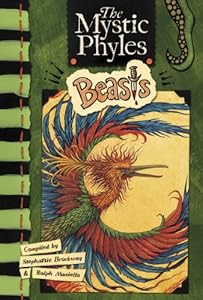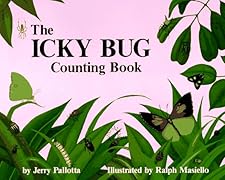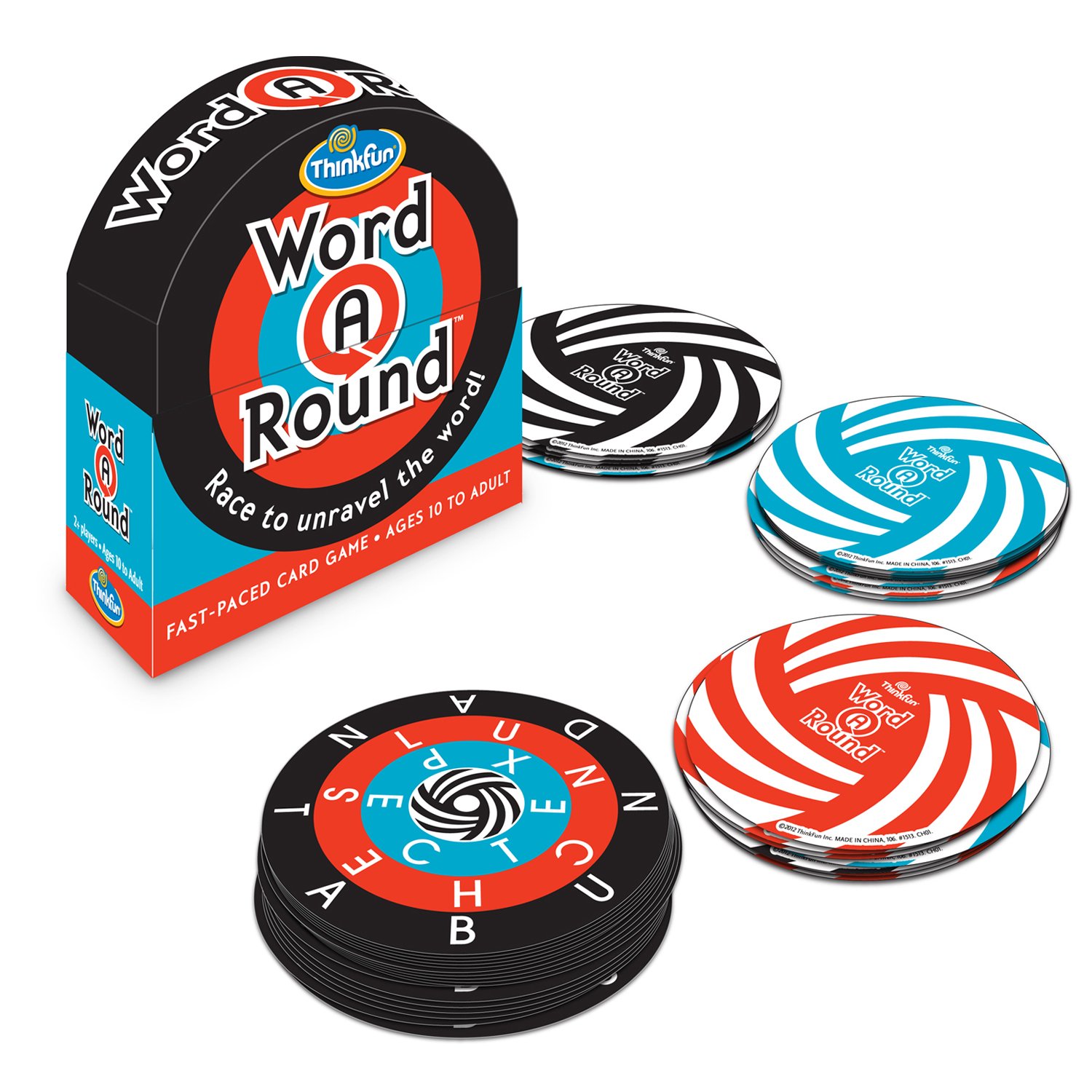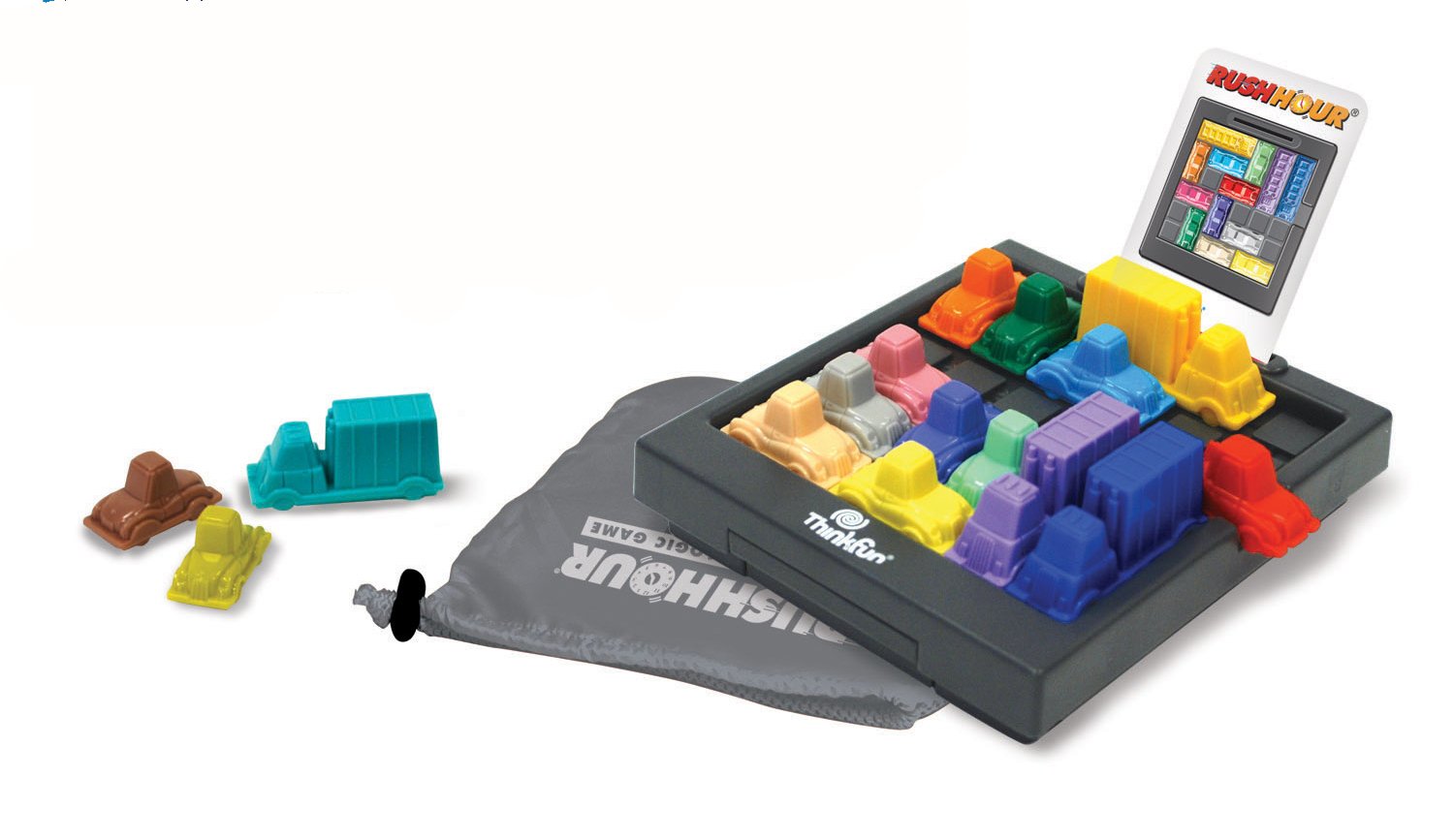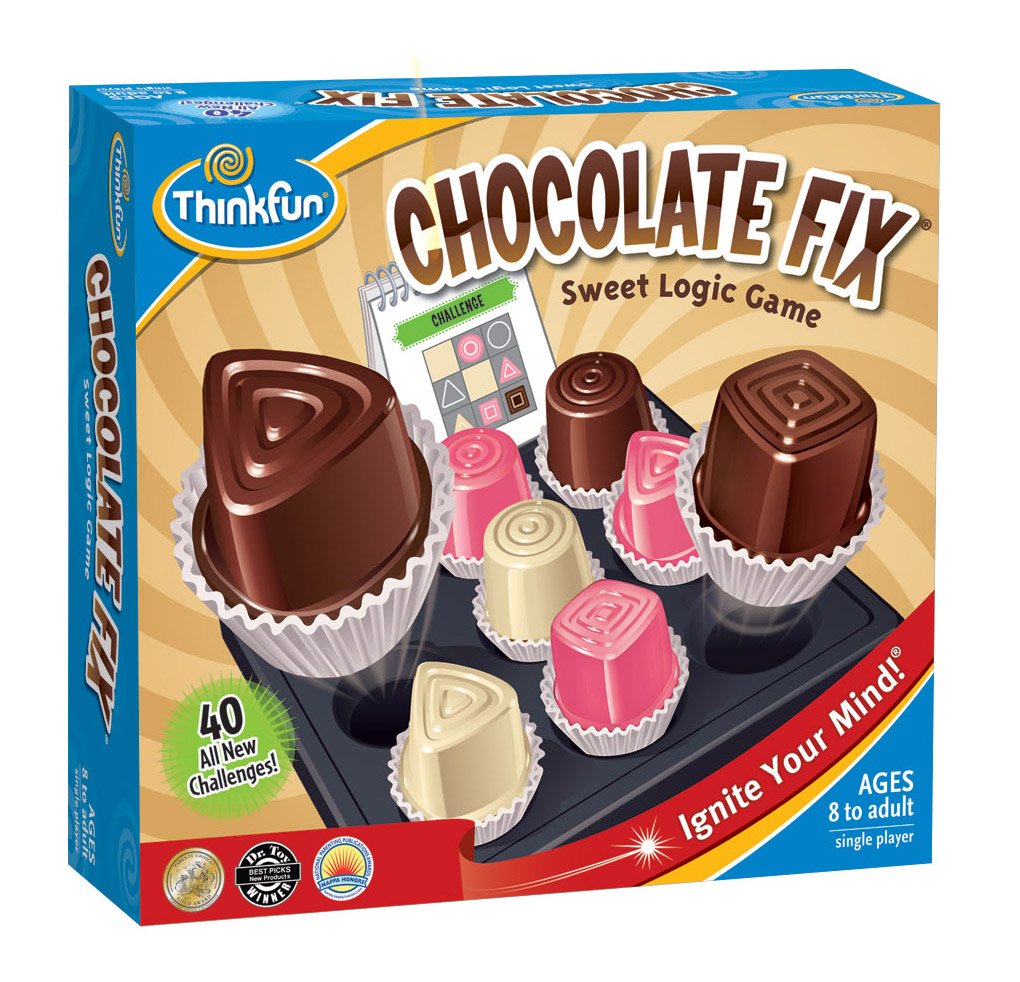I've always been a big fan of Think Fun games. I remember when my kids would sit for an hour (okay, 10 minutes... :) and play Zingo! years ago. They LOVED that game, and I did too! Our bookshelf is stocked with many of the Think Fun products, and I thought I'd share our favorites with you.
First off, Rush Hour has been getting lots of play at our house this week. You can purchase a Jr. version, a deluxe version, or a regular version. They all look something like this:
The differences between them are basically the types of vehicles that you will receive in the package and the level of difficulty of the problem solving cards (although each set does have an easy-medium-difficult variant). We own the Jr. version, and I think we're almost ready to graduate to the regular version (rated 8 and above). And, when I say we're almost ready, I'm including myself! Some of these scenarios are challenging!
For those who may not be familiar, the game is a "gridlock puzzle" which requires the player to make repeated strategic moves to free one particular vehicle up to move off the 6 x 6 playing board. In the case of the Jr. version, that vehicle happens to be an ice-cream truck. How fun!
Each of the 40 scenarios presented has a solution on the back. The nice thing about the solution set is that it's a bit cryptic, which prevents impulsive cheating.
While this game is a fun challenge for all, I'd also like to point out the benefits for those who may be parenting children with special needs. I see so much potential for practice for children who:
- have difficulty persevering with tasks
- present with executive functioning challenges (i.e. planning and coordinating thinking)
- struggle with visual spatial awareness (having to line up the cars initially is a great way to practice reading positions on a grid, then having to coordinate moves to free the cars requires lots of thinking about which portions of the grid need to be freed up)
If you purchase the standard/adult version, there are reasonably priced ($6-9) expansion packs of cards you can purchase that also come with bonus vehicles.
I read reviews on Amazon that suggested the Deluxe version wasn't really "deluxe" so you may want to read some of the feedback before you purchase.
I highly recommend this puzzle / game if you have a child who presents with the challenges I mentioned, and I also endorse it for those who just want to see their kids/students working hard to problem solve something that's not a video game.
The next Think Fun game that may be of interest is Distraction (rated 8 to adult). And, it lives up to its name for sure. You can strengthen your memory by taking turns drawing number cards and remembering an increasing sequence of digits. Draw a distraction card and you must answer a quirky question before reciting the numbers in order. If you repeat the sequence incorrectly, and get caught, you collect all of the cards. The first player to run out of cards wins.
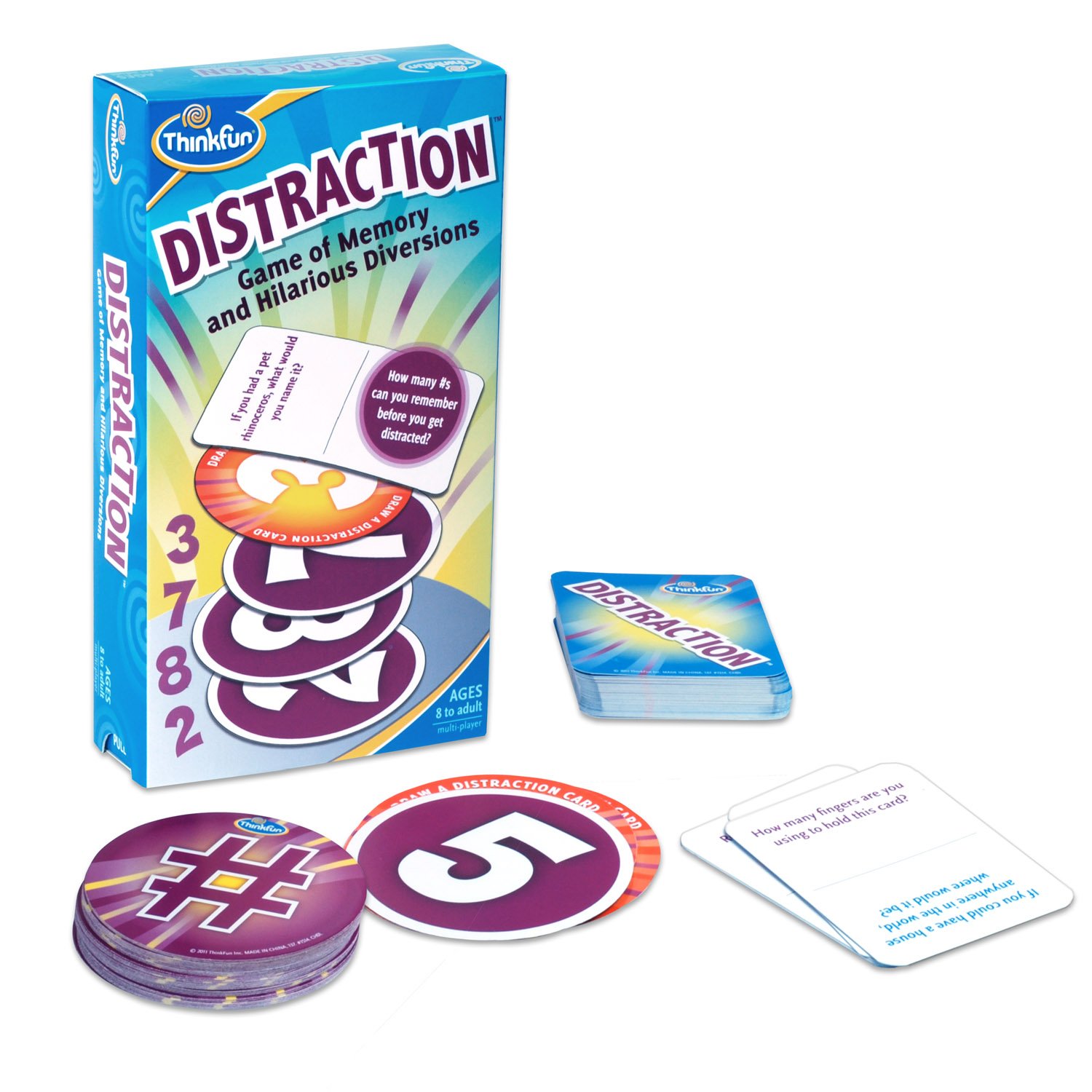
This game initially caused some frustration for a few members in our family. If your child has a weak digit span (i.e. ability to remember a sequence of numbers and a common measure of short term memory in neuro-physcological testing), or is diagnosed with ADHD or dyslexia he or she is likely to be very challenged by this game. That said, you shouldn't shy away from introducing it. You should encourage its use in a non-threatening way. You can modify it to make it inclusive by allowing pencil and paper recording of the numbers for a few rounds until your child learns the rules and becomes accustomed to the game play. Then you can remove and fade the supports. You could also play in teams and pair your child with a "stronger" opponent. You could also bend the rules a bit, and program in the distraction cards at intervals that match with your child's digit span in order to build success. This game is a great tool in developing digit span, and it happens to be fun too!
Next up, Chocolate Fix (also rated 8 and up), the sweet logic game. It's like Sodoku without numbers. Like Rush Hour, it has 40 scenario cards that come with the game.
This is a game of logic and deductive reasoning, and a very inviting way to begin to explore the logic used in Sodoku puzzles without laying math on top. Unfortunately, this game doesn't have any extension packs, but the 40 challenges in the game box make it worth the $15 price tag.
If you don't already own Think Fun! games, consider checking them out. If you do own some of them, comment with your favorites. All of these games are on our shelf and have been well-loved and enjoyed. Let me know if you enjoy them too!




